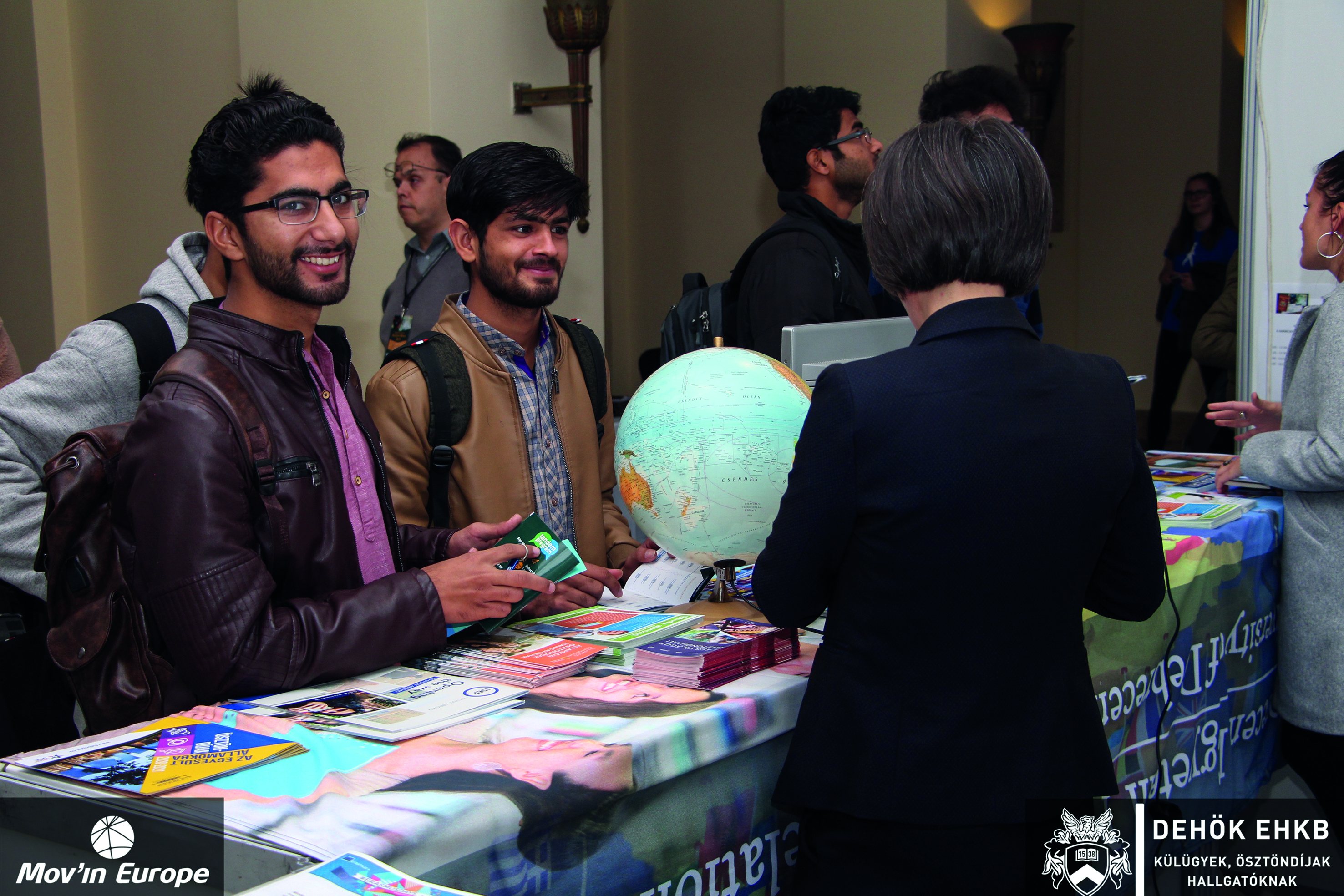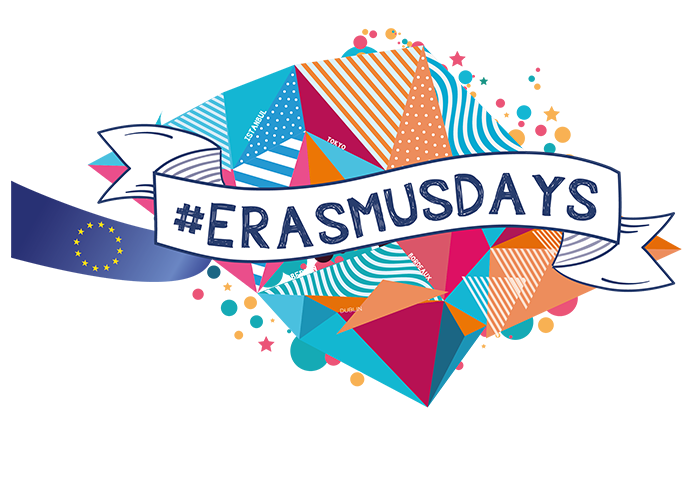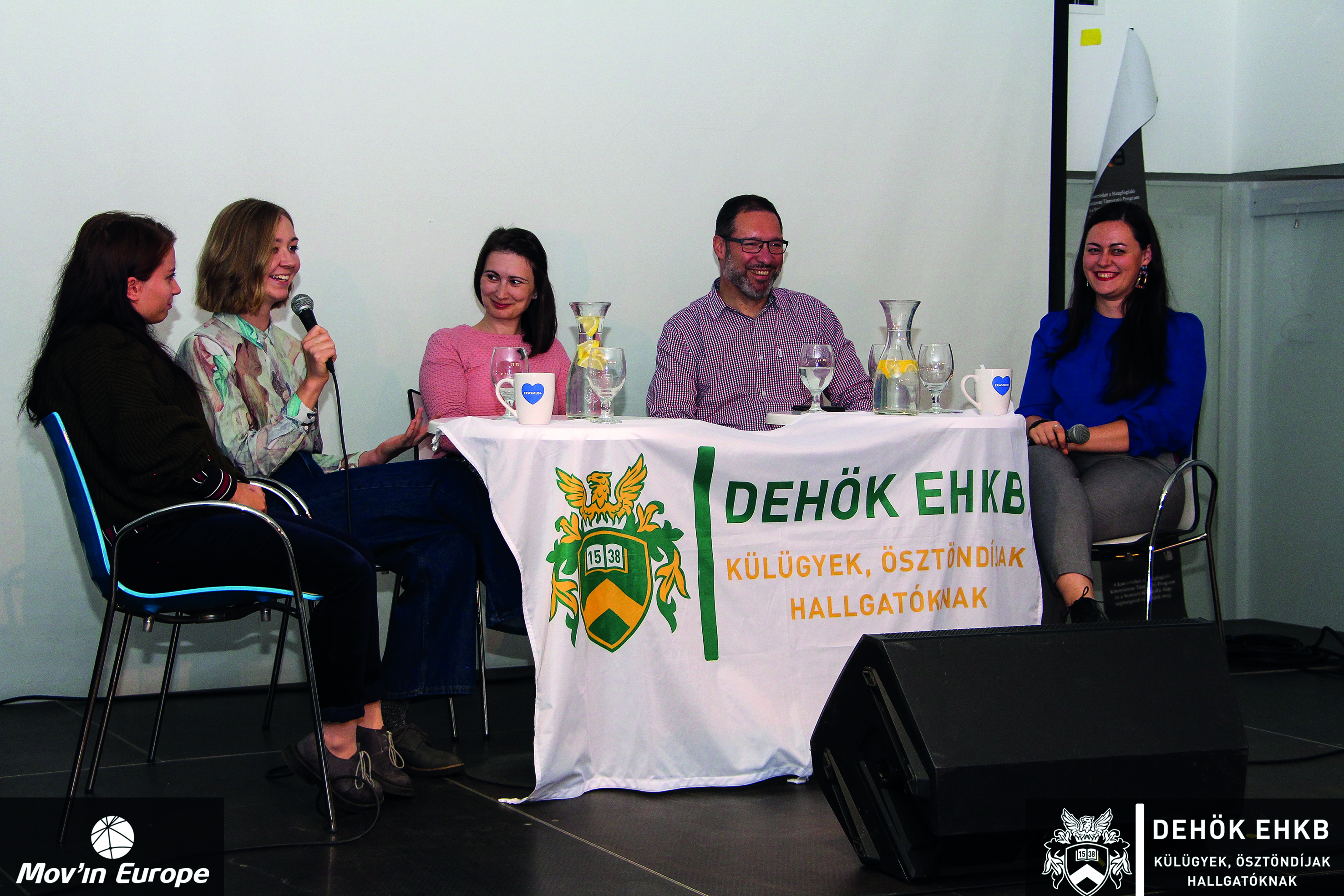
The University of Debrecen International Office has worked together with the student organisations of the university for decades to promote mobility. The joint efforts proved to be effective: in spring 2020, their programme called ‘Erasmus Days’, developed in cooperation with the Erasmus Student Network (ESN) Debrecen gained them international recognition.
We asked Orsolya Jánosy, Head of the University of Debrecen International Office and Dóra Palakovics, President of ESN Debrecen about their common work and the award-winning programme.
How long has the University of Debrecen International Office worked with ESN Debrecen?
Orsolya Jánosy: For as long as I remember. I started working for the University of Debrecen in 2004, and even as early as that, we organised Foreign Affairs Fairs together with the Student Committee for Foreign Affairs. At that time, we didn’t have such a diverse series of events as now, but we already considered cooperation with student organisations very important.
Dóra Palakovics: The Student Committee for Foreign Affairs has cooperated with the International Office since the beginnings, and in 2010, the Committee also joined the Erasmus Student Network (ESN), so now it’s helping both inbound and outbound students in this dual role.

How have you benefited from this cooperation so far? What do you consider the greatest achievement of the common work done during the past few years?
D.P.: We are constantly getting new event ideas from the ESN which could be exciting and useful for both inbound and outbound students. The International Office is highly open to these ideas, and without their support, we couldn’t organise so many varied programmes.
O. J.: Our work is greatly helped by ESN Debrecen being very active and well-organised. Assisting outbound and inbound students, organising orientation days and community building programmes are all the responsibilities of ESN Debrecen. They can also help us a lot in reaching even more students through the social media. They are an authentic source, since most of them are also former scholarship holders. At the International Office, we always employ an intern, who is usually a member of ESN Debrecen. Among other things, it is their responsibility to function as a bridge between the two organisations and to facilitate communication. I think it could set an example for anyone. In fact, this thing couldn’t really work without each other.
You already participated in the first Erasmus Days in 2018 together. What lessons did you draw from that year?
D.P.: It was really then that we decided to organise the Mobility Week, where we would compress the programmes introduced in the previous years to promote mobility into one single week.
O. J.: That was when we realised that we could promote the events much better this way than by distributing the same programmes throughout the academic year.

You also organised the Erasmus Days in 2019 together. What programmes did these days offer to students?
O. J.: The idea was to be present in as many locations as possible during the week, offering as varied programmes as we can, in order to reach even those students who would otherwise surely not attend our presentations. During the Erasmus Breakfast, we offered morning coffee and snacks to students while providing them relevant information at various university campuses; we also organised Mobility Café round table discussions, where former scholarship holders spoke about their own experiences, too, and of course, there was the Foreign Affairs Fair, where students were informed about the mobility opportunities of 18 organisations.
With this programme series, ESN Debrecen won third place in the mobilityStar category of STARawards, organised by the Erasmus Student Network. What is this award exactly?
D.P.: It’s an international recognition which highlights the most imaginative and highest-standard events and projects within the Erasmus Student Network. The call for applications was announced and the applications were considered by the committee at the international level of the ESN, the Network Committee. There were 14 categories for applications, and 260 applications were received. Winners were announced and awarded at the annual international general meetings.
How are STARawards winners recognised?
D.P.: The winning projects receive international publicity. A summary of the award-winning events is uploaded to the STARawards website, and the winners also get publicity on the social media platforms of ESN International. That has spread word of both the University of Debrecen and ESN Debrecen far.
Besides the Erasmus Days, are there any programmes at the University of Debrecen which you organise jointly for the students to promote mobility?
D.P.: Mobility Café is an event series organised on a monthly basis throughout the academic year, with discussions addressing a different area or type of mobility each time. We are always present at university Job Fairs, too, promoting opportunities of foreign internship.
O. J.: Also, we organise informative evening events, and we arrange with lecturers to get the first 10 minutes of bigger lectures to talk about mobility opportunities. We also ask teachers who have themselves participated in the Erasmus+ programme to encourage their students to apply. We try to schedule most of the programmes for the autumn semester, so that students have enough time until the great spring application period to plan.

What feedback do you receive from students about these programmes which promote mobility?
D.P.: What I see is that Mobility Café is very popular, always attended by lots of students, and we have many regular guests. The Erasmus Breakfast is also very successful. Many arrive well-prepared, as they learn from our social media platforms why we give out breakfasts, but there are always some who just happen to walk there. These occasions always enable great conversations, and the students are generally open when they find out how many opportunities they have for foreign studies or internship. But basically, it applies to almost all of our events.
Do you already have any plans for this years’ Erasmus Days?
O. J.: We’re already thinking about it, but in these uncertain times, it’s hard to tell exactly how it will happen. If we can’t meet personally, we’ll need to find a virtual solution. All the more so because from 2021, virtual mobility will also receive more emphasis within Erasmus, so it would be a great occasion to direct the attention to this opportunity.
Utolsó módosítás: 2021.03.02.












